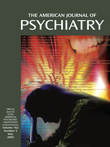To the Editor: Drs. Foulds and Williams make a valid point regarding our article: smoking makes a substantial contribution to the morbidity and mortality of individuals with schizophrenia. Although we decided at the onset of our consensus meeting that we would not include discussion of all of the factors that should be monitored in patients with schizophrenia, we agree with the writers that psychiatrists should inquire about smoking routinely. If patients are smokers, clinicians should review the health hazards associated with smoking and the available approaches for promoting smoking cessation. Whenever feasible, clinicians should engage in attempts to motivate patients to give up smoking, and they should refer them to a specialized smoking cessation program.
The letter from Dr. Steele provides an opportunity for us to underline the importance of mental health providers ensuring that their patients with schizophrenia receive adequate eye care. The recommendation for annual eye examinations for patients over 40 is a standard of care for all individuals rather than a special requirement for individuals with schizophrenia. The participants at the consensus meeting also recommended that psychiatrists inquire about the quality of vision on an annual basis and that they inquire specifically about changes in vision, the quality of distance vision, and the presence of blurry vision. Changes in vision should lead to a referral to an optometrist or an ophthalmologist. The additional requirement for slit-lamp examinations at 6-month intervals for patients receiving quetiapine is included in its package insert. As noted in the article, the meeting participants agreed that clinicians should follow the recommendations on the quetiapine package insert until there is more definitive evidence regarding the risk of cataracts. Because patients with schizophrenia often have risk factors for lens opacities, such as diabetes, hypertension, and poor nutrition, clinicians should inquire about visual changes and ensure that guidelines for visual monitoring are followed, independent of the antipsychotic prescribed. The article also noted that the level of evidence for an association of cataracts with specific antipsychotics could not be graded. As in several other areas, we hope that more definitive information will become available, resulting in updates to package inserts, whether those updates are more restrictive or more permissive.

